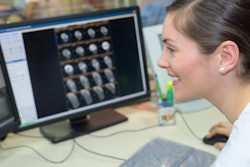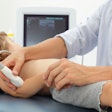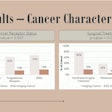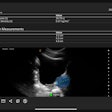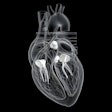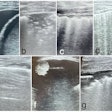Telemedicine can increase access to fetal echocardiography for underserved women and can also be used to determine remotely if pediatric heart transplant patients are at risk for transplant rejection, according to two studies presented at this week's American Society of Echocardiography (ASE) meeting in Seattle.
A study from the University of Arkansas for Medical Sciences (UAMS) in Little Rock, AR, found that telemedicine of fetal echocardiography studies could be used as a screening tool for expectant mothers who are high-risk and underserved. In addition, researchers from Stanford University reported that it's possible for parents to acquire basic echocardiography images on pediatric heart transplant patients and share these exams with caregivers over the internet.
In the first poster presentation, a team led by Dr. Elijah Bolin of UAMS noted that the use of telemedicine led to the diagnosis of 57 fetuses with heart disease. Of these, four had critical congenital malformations that necessitated immediate postnatal medical intervention.
"Telemedicine can aid underserved expectant mothers by both accurately identifying those fetuses with heart disease, and by otherwise reassuring mothers whose fetus has a normal heart," Bolin said in a statement from the ASE.
In their poster presentation, the Stanford researchers shared how they were able to successfully train parents of pediatric heart transplant patients to perform a basic echocardiography exam with a small portable echocardiography device. The resulting images are then sent over the Internet to the care team for evaluation, according to Dr. Seda Tierney and colleagues.
This system offers considerable value, as more than half of Stanford's pediatric heart transplant patients live more than 100 miles away, and these patients are often seen in emergency rooms for symptoms that could be due to rejection. However, echocardiography studies may not be available around the clock, and a large number of these symptoms end up not being caused by graft rejection, according to the researchers.
"This will be a novel tool for families and caregivers, allowing better remote assessment of these children at risk for transplant rejection in the comfort of their home, and will likely decrease the frequency of emergency room visits long-term," Tierney said in a statement.




